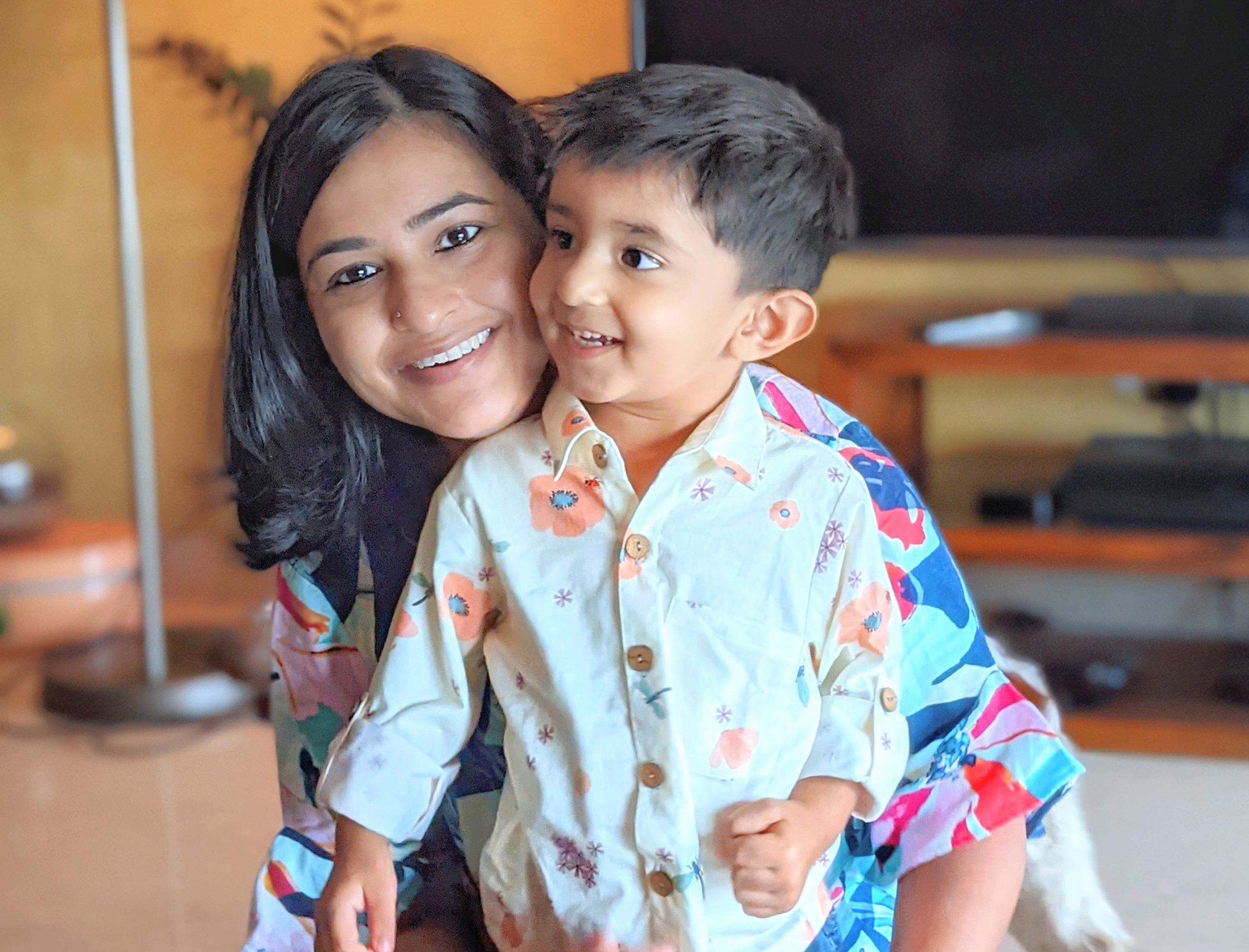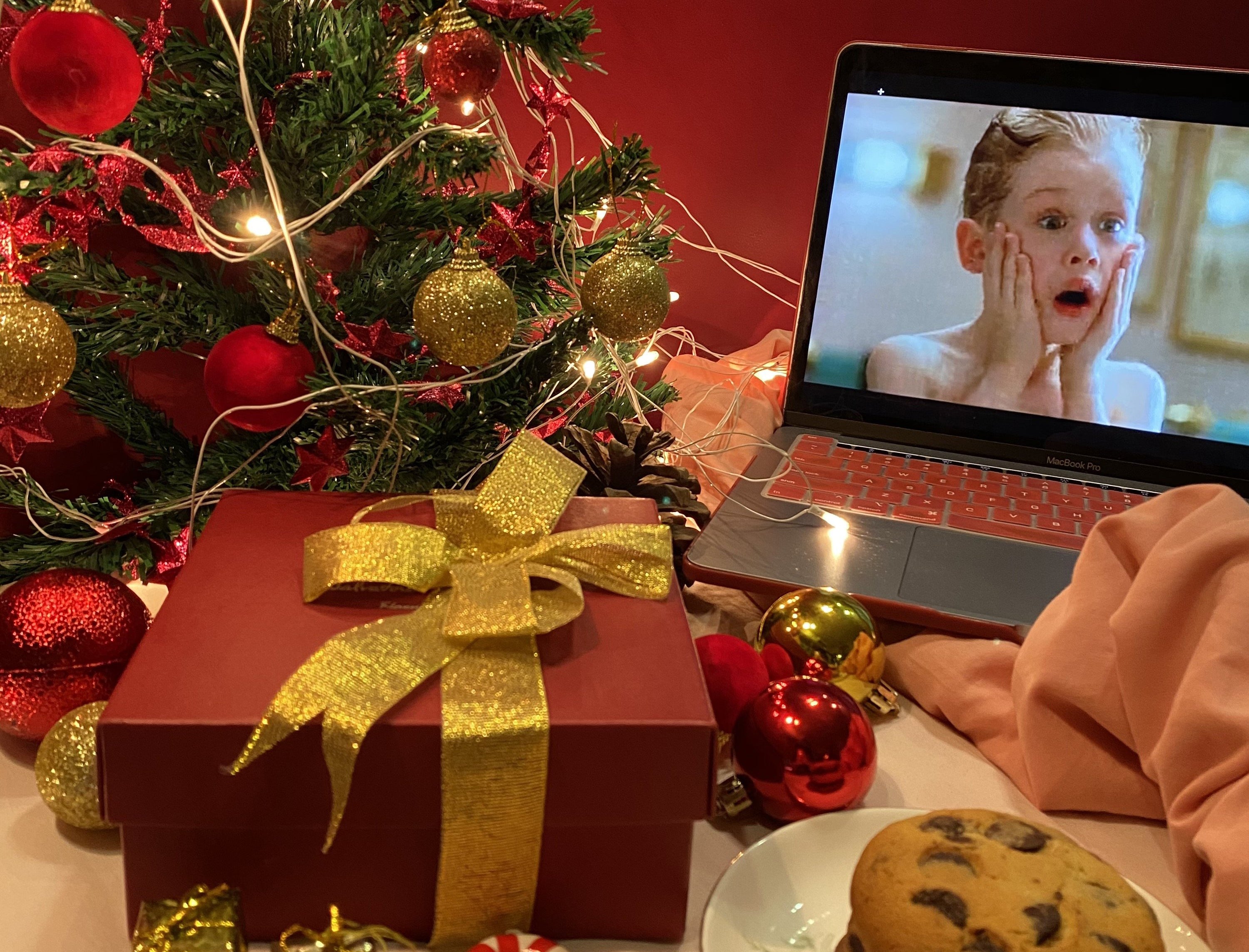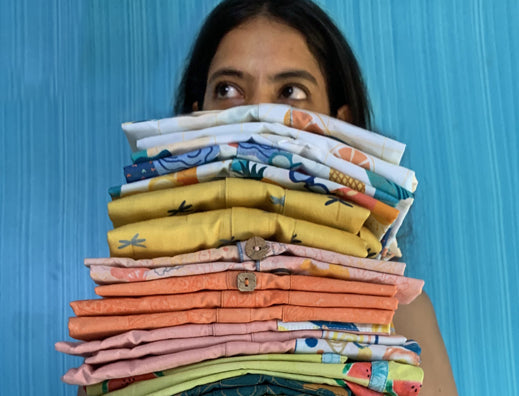
Sonika's Guide to Sustainable Living

Sonika began her low waste lifestyle and her journey as a mother almost simultaneously. With making slow changes to their lifestyle, the Bhasin household today doesn't need a dustbin, because they don't trash anything! We got Sonika to bust some myths and talk to us about her journey with zero-waste living.
P.S. We recommend grabbing a notepad for this one, because it sure was one insightful conversation!
Miko Lolo : Tell us a bit about your journey with sustainable living. Have you always been environmentally aware?
Sonika : I always thought I was conscious and refused plastic bags and straws, always hated to waste anything, especially food, but that was mostly it. It was after my son was born and I randomly bought a cloth diaper, that I really became more aware about the subject. And this happened because I joined a Facebook group for cloth diapering and realized that a lot of parents on the group cloth diapered because it was better for the environment. With the help of this group, I started cloth diapering my son when he was 2 months old and followed that exclusively till he was potty trained. I realized how harmful soiled diapers were for the environment and also for the baby! Cloth diapering is actually addictive (ask any parent who cloth diapers)! We even used cloth diapers on road trips, outstation trips, flights etc. Never used a single disposable diaper after that.

This is what opened the door for me and I started educating myself and reading up about sustainability and zero waste living. Thankfully my husband was on board and we started making changes, one at a time. We also decided that we would not go crazy buying stuff for my son since we had friends with older kids and always got their hand-me-downs. My son is 2 years old and most of his clothes, shoes, toys and books are preloved. Kids actually don’t need much, and are happy with whatever they get!
The biggest eye-opener for me was the fact that generating waste is a huge issue. Most of us don't know what happens to our trash once it leaves our house. I had no idea myself. Once you do, you will automatically want to cut down. As someone put it 'There's no garbage black hole' - Garbage doesn't disappear. It goes to landfills or garbage dumps, where it stays for 100s or 1000s of years. There are mountains of garbage outside big cities and these garbage dumps release greenhouse gases that contribute to climate change, they release toxins into the soil and water that directly impact us. Something that really moved me, was finding out that people who live close to landfills have a much shorter lifespan than those who don't. That means - our garbage is actually killing people. When I learnt this, I was determined to change my lifestyle and make sure that nothing from my house goes to a landfill. And I'm happy to report that we've now reached a stage where we don't have a dustbin in our house and we don't trash anything.
Changing one’s lifestyle entirely can get overwhelming. What is the easiest way to start?
The easiest is to carry your own bags whenever you go shopping (and even refuse paper bags if you can). And carry your own bottle. It’s something that everyone says but we tend to forget these things while leaving home and end up using disposable options. The other extremely easy step is to swap regular commercial products with sustainable ones. I think one of the easiest categories is home cleaners. Once your floor cleaner, bathroom cleaner, dish wash soap, detergent etc is over, instead of buying your regular brand, buy a biodegradable one. They aren't just good for the environment, but also for you. Commercial cleaners are full of nasty chemicals, especially for people with kids and pets. Don't take my word for it, just Google what goes into these!
Then move to bathroom products. Once your shower gel is over, buy a soap. Try a shampoo bar. When it’s time to change your toothbrush, get a bamboo brush. These kinds of changes are the easiest to make because they don't need a change in lifestyle, just a change from Product A to B. A word of advice - Please don’t start throwing your things out! Use what you have, till the last drop and then swap. This also goes for things like plastic containers (esp kitchen storage). Use them till you can and once it's time to buy new, opt for glass or steel containers.

What are the real struggles of zero-waste living in 2021? Are there any?
Honestly, no! I didn’t even find any of this difficult during the pandemic. I was also very lucky that a zero waste store (Adrish Zero Waste) opened up just before the pandemic 5 mins from my house! It was almost like I manifested it! And luckily I had also started composting at home just before the pandemic. Over the last year I’ve also discovered tons of local sustainable brands for all sorts of products, lots of online stores that sell these and do plastic free shipping. It’s really much easier now than it was a few years ago.
Being a mother, what decisions have you taken to raise Abir in a more environmentally conscious way?
We’ve decided to not buy anything for Abir if we can get it preloved, and thankfully we haven’t needed to buy much. We want him to be used to and happy with hand-me-downs. We haven't bought a single new toy or book since he was born and we still have so much! If you don't have people with older kids who can pass down their stuff, there are a lot of sites that offer preloved products. This saves money as well as the planet! We also don’t have any dustbins in the house, and so he knows that he can’t just throw something. He sees us segregating our waste, composting etc and hopefully he’ll imbibe these practices as part of his life. For Christmas, we got a real Christmas tree and ornaments made from cloth scraps/textile waste so that he enjoys the holiday but also knows that the tree is still there, I water it and it’ll be with us for a long time. He’s too young to explain things to, but I hope that since this is how we do things at home, it’ll just come naturally to him.
 Abir wears the Spot the Ladybug Shirt
Abir wears the Spot the Ladybug Shirt
You threw a zero/low waste birthday party for Abir recently. How did you plan that?
For starters, I looked for ideas online. Places like Pinterest have such amazing ideas! Then I asked folks on this zero waste india Facebook group that I’m a part of, and got tons of ideas from there as well. It was a lot of fun! Here's what we did:
a. We had a no gift policy and strictly enforced it!
b. Decided to get reusable cloth buntings and actually got cloth scraps from some tailors around my house (who usually throw them) and got buntings made of that. Even gave them some of my own cloth scraps (for some reason I had leftovers of things I had got altered!). We’ve used the same buntings for several occasions now. I got some decorations from this amazing company called Use Me Works who make these from textile waste. Also got lovely sling bags (made from leftover denim) for return gifts. Got a set of plantable colour pencils, a bamboo straw and a chemical free soap to go inside the bag.
c. Made most of the food at home.
d. Got a set of steel plates and glasses (which will be used for all future birthdays), and used cloth napkins. So there were no balloons, no disposable plates or glasses and the kids had a ball! They don’t care for these things! They just want cake and want to have fun!
 Zero waste party ideas on Sonika's Instagram (@sonikabhasin)
Zero waste party ideas on Sonika's Instagram (@sonikabhasin)
Top 3 myths about zero-waste living?
1. It’s very difficult - Myth
It’s really not. If it was, so many people wouldn’t be able to do it. It needs commitment, that’s all. Just like a diet or a healthy lifestyle or a parenting choice. Nothing is difficult if you really want to do it.
2. It’s expensive - Myth
I’ve not saved as much money as I have while living sustainably because I don’t buy anything I don’t need!
3. It’s time consuming - Myth
It's not! I've had so many people ask me how I get the time. I really don’t know why people think it takes time. It takes 5 mins a day to put your wet waste into a composter. Maybe a few minutes to rinse and dry the dry waste. Other than that, on a daily basis there isn’t anything that takes any extra time. There are some DIYs like I make Bioenzyme (another highly addictive and joyful activity!) that takes maybe 10 minutes, once a month. But if you don’t want to DIY, just buy from a sustainable brand. So you don’t even have to do that.
A book that made a major impact on you.
I recommend the Bare Necessities book on Zero Waste Living. I also did an online course with them and it was very useful. What made a major impact on me was hearing Divya Ravichandran, the founder of Skrap talk about her experience and why she moved towards a zero waste lifestyle and started Skrap. I had goosebumps and I just knew I had to do this myself. This was at a Sustainability event organized by Brown Living and I owe a lot of them and Divya for really inspiring me.
The pandemic really helped actually because it made a lot of people conduct workshops and speak about sustainability online, especially on Instagram. I attended a lot of those and highly recommend these workshops and courses:
- Online workshops by Skrap (they have several every month)
- A Zero waste living online course by Bare Necessities that you can do on your own time, at your own pace.
- Attend Insta lives by these people as well as @wormrani and @dailydumpcompost
What would be the title song of your life?
I love this question! My favorite song for years has been ‘Coming Back To Life’ by Pink Floyd and to think of it, in a way, following this lifestyle is really like Coming Back To Life! So that would be the title song of my life :)
3 Instagram accounts for the best zero-waste living inspiration.
I’m going to list more!
@Skrap.zerowaste @barenecessities_zerowasteindia @brownlivingindia @mycocktail_life @conscious_chokri @sustainability.stories @the_sustainable_indian @thelowwaster
🌿 🌿 🌿
As a household, we've been a no dustbin, low waste household for over a year. And we've come to a few guiding principles that I want to share:
1. The easiest and most important thing is to reduce consumption. We don't buy anything that we absolutely don't need. If you consume less, you waste less (and also save more!)
2. If we do buy, we try and buy organic, reusable, sustainable and local products, as much as possible.
3. We avoid using any single use or disposable product - whatever material it might be made of. So instead of paper tissues, we use reusable cloth napkins (I have one in every bag I use!). Instead of a wet wipe (that's made of plastic) we just wet a cloth napkin. Instead of cleaning my face with a cotton ball, I use a cloth wipe.
4. Buy package-free, as much as possible. This is especially for grocery. You will find that most large stores or even local kirana shops have lots of stuff available loose. Just carry your own containers/bags and buy them. This takes no effort (just a little planning) and reduces unnecessary waste.
Start slowly, do one thing at a time. Every change matters! And trust me, once you get the hang of it, you won’t even think twice. It just becomes a part of life.
Feeling inspired already? Kick off your sustainability journey with this easy DIY toothpaste recipe by Sonika!
Take some baking soda, add some coconut oil (use an organic cold pressed oil), and a few drops of peppermint essential oil. That’s your chemical free toothpaste right there! Takes a few minutes to make.





2 comments
So proud of you Sonika. Would like to emmulate a few ideas… if not all.
Anita Jatana
Highly proud of my daughter for being extremely focused, mission oriented, and self-disciplined. I have been influenced by her and moved a few inches. I know I have miles to go
Brig Sushil Bhasin
Leave a comment
This site is protected by hCaptcha and the hCaptcha Privacy Policy and Terms of Service apply.